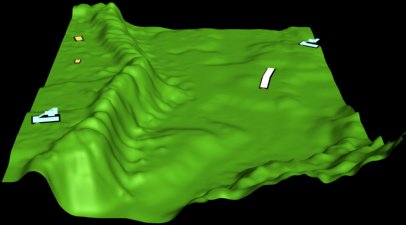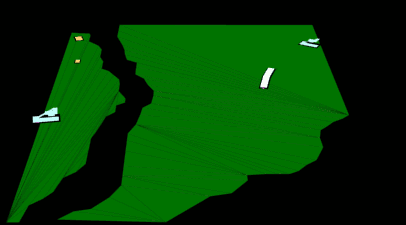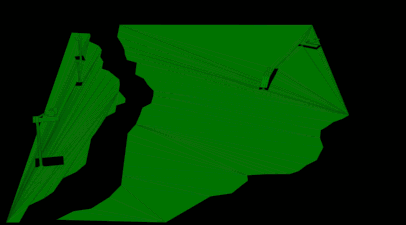
A terrain height field and some markup for placed buildings
| PathEngine home | previous: | next: |
Because the representation of height detail in large terrain areas can potentially be very memory hungry, PathEngine supports the removal of height detail from these areas.
This is done by redirecting queries for height values within terrain areas to other, application specific mechanisms, and, on the content side, requires that these terrain areas are marked appropriately within content applications.
When creating meshes for parts of the world for which the terrain callback mechanism is used,
it's important to remember that the height of this ground surface is irrelevant.
This 'terrain stand-in' geometry only serves to represent the limits of movement and connectivity to
other, non-terrain parts of the world.
Terrain stand-in geometry can be flat, or can adjust to approximate terrain height for convenience, but should contain no internal height detail. Only the external edges of this mesh are relevant.
Features placed on the terrain, such as buildings, can float above that terrain, and can use the automatic building entrance connection feature, with 'terrain portal' markup.

A terrain height field and some markup for placed buildings

'Terrain stand-in' geometry, with the same building markup - note how the buildings float above the stand-in geometry
In ground meshes containing terrain stand-in geometry there can be significant discontinuities where
stand-in geometry meets building internal mesh, or other non-terrain geometry.
This is not a problem, height queries for the terrain parts of the mesh will be redirected to
an application side terrain representation, and the end-user will be unaware of these discontinuities.

The resulting ground mesh
| Documentation for PathEngine release 6.04 - Copyright © 2002-2024 PathEngine | next: |